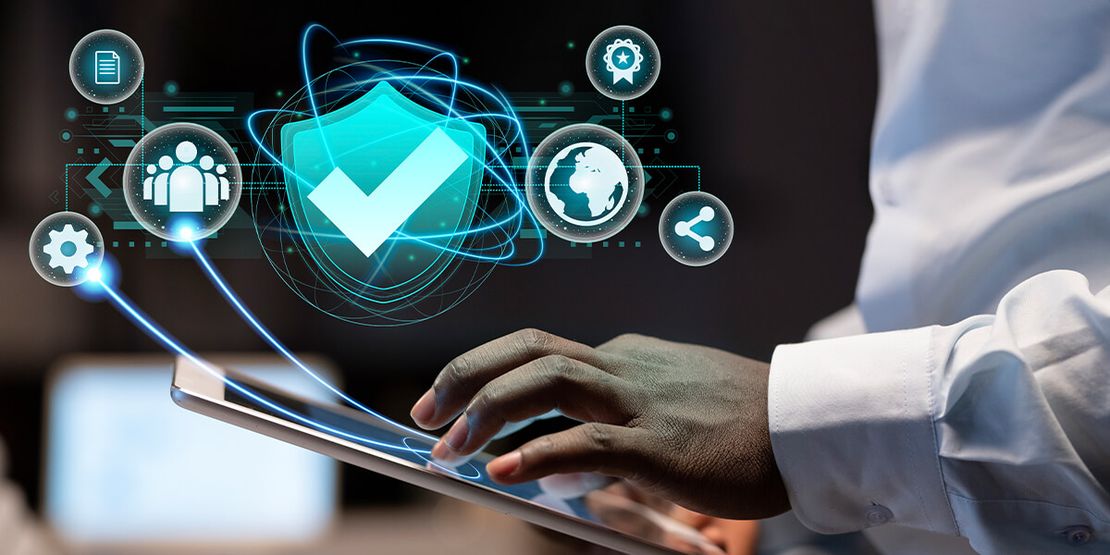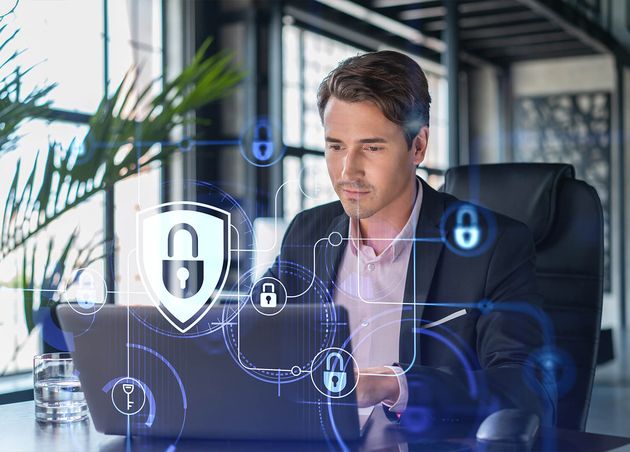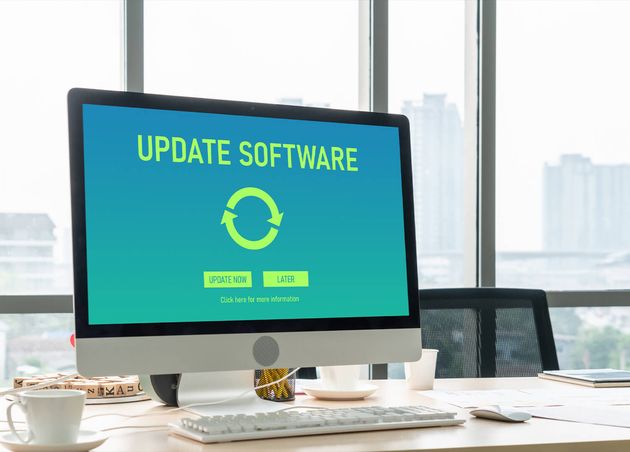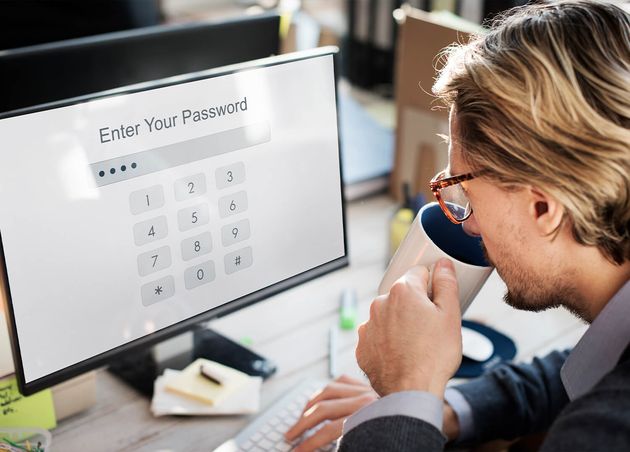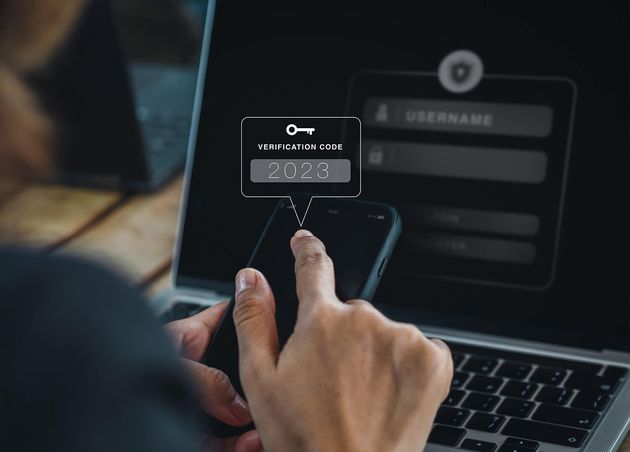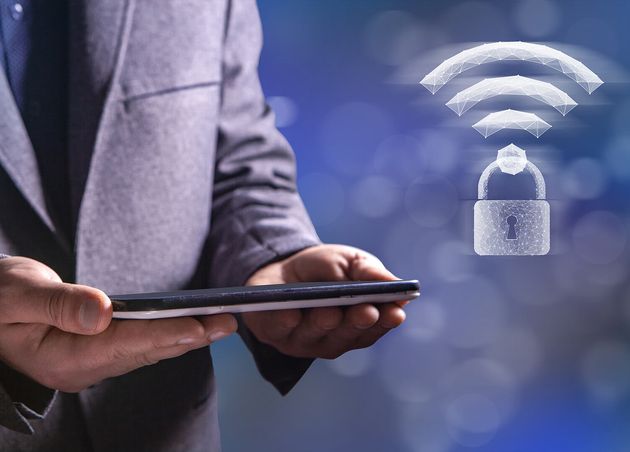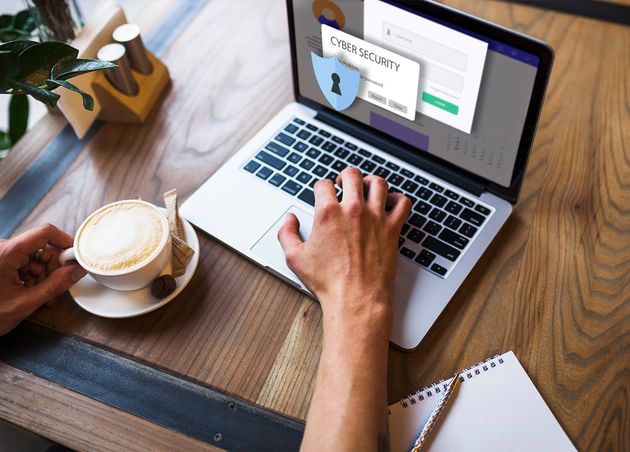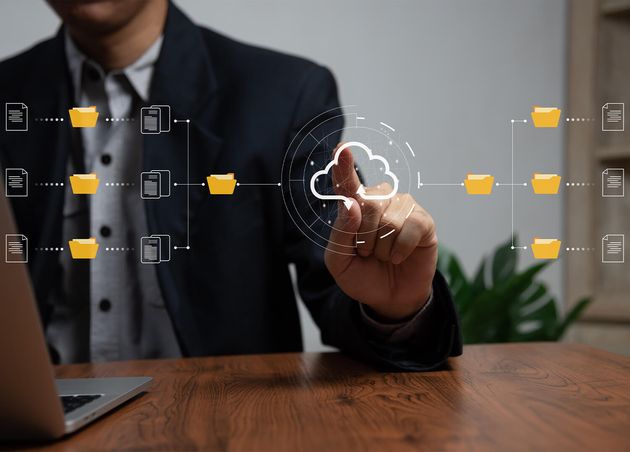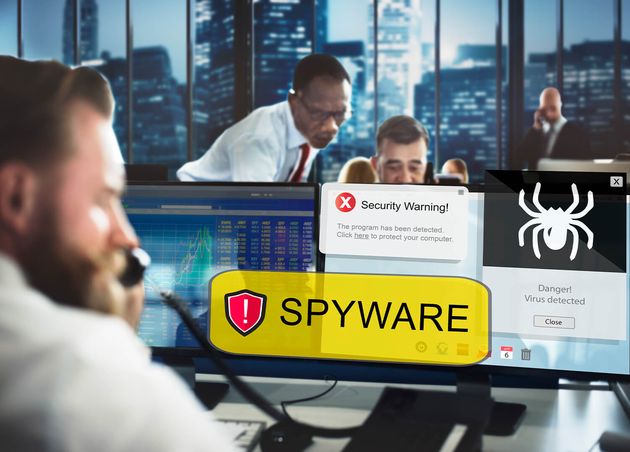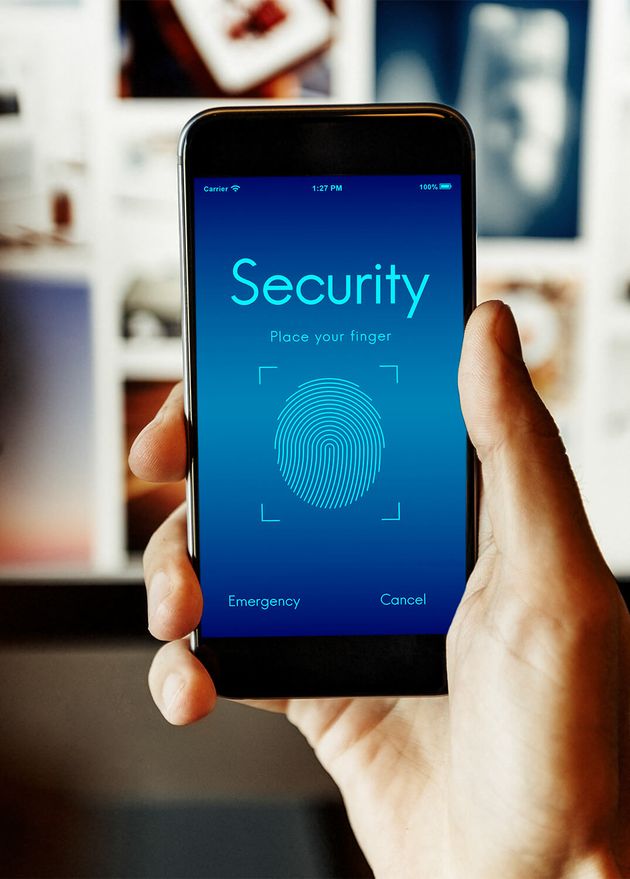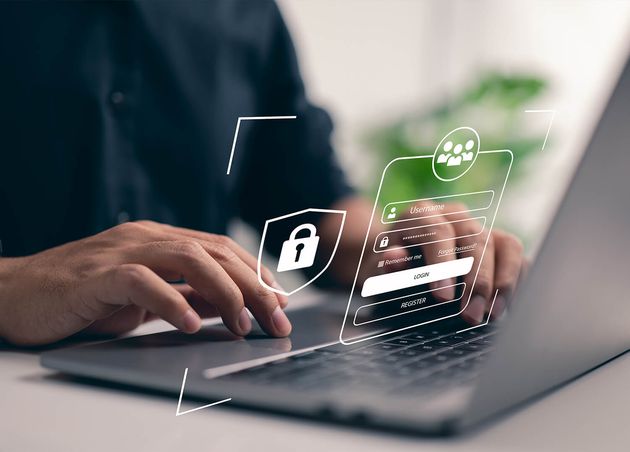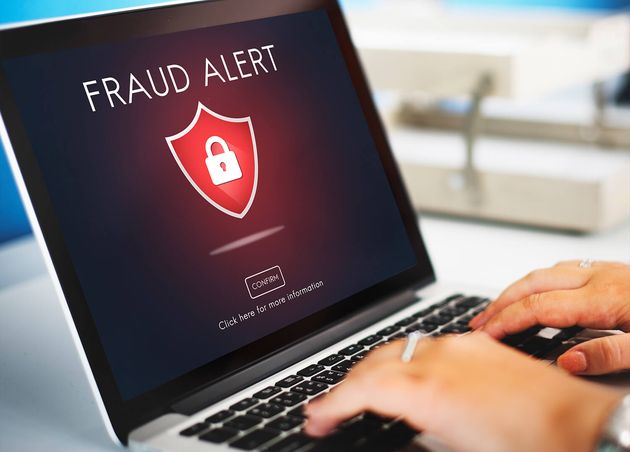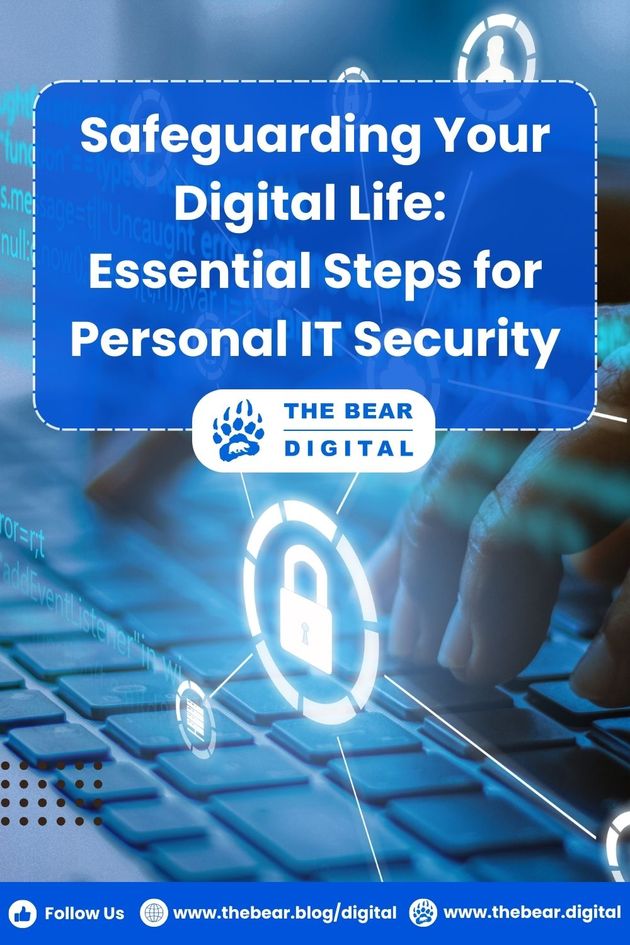Safeguarding Your Digital Life: Essential Steps for Personal IT Security
In this modern digital era, ensuring personal IT security has become a fundamental aspect of our daily lives. As our dependence on technology for a wide range of activities stretches from interpersonal communication to complex financial transactions, the need to adopt preventive measures to safeguard our sensitive data from constantly emerging digital threats has never been more significant. Whether one has a proficient understanding of technological intricacies or approaches digital interfaces as an occasional user, everyone must acquaint themselves with essential measures to secure their personal IT security.
In an era where our lives are intricately woven into the digital fabric, the imperative to prioritize our IT security takes center stage. While offering unparalleled convenience, the internet exposes us to many online threats, including hacking, identity theft, and data breaches. Elevating your online security doesn't have to be complex. Below are a few straightforward yet highly effective practices incorporated into your digital routine that can make a significant difference:
#1 Keep Your Software Up to Date
Regularly verifying the currency of your operating system and software applications is crucial in safeguarding your digital environment. Software engineers and programmers routinely release updates to address vulnerabilities that malicious hackers could exploit. Neglecting to install these updates leaves your devices susceptible to imminent cyber threats. Make it a routine in your digital practices to conscientiously review updates and promptly implement them to fortify your digital security.
#2 Solid and One of a Kind Passwords
Your passwords serve as the primary defense against unauthorized access, constituting the first line of protection. Strengthen your account security using passwords that incorporate a mix of uppercase and lowercase letters, numerical digits, and strategically placed special characters. It's crucial to avoid easily deducible information, such as personal birthdays or well-known names. Opt for enhanced security by utilizing a reputable password management tool to organize and safeguard your password portfolio, mitigating the risk of unauthorized access.
#3 Activate Two-Factor Authentication (2FA)
Elevate the security of your online accounts by implementing two-factor authentication, a valuable measure that adds an extra layer of protection. This involves introducing a secondary method of verification beyond your password. This additional layer of security may involve receiving a unique code on your mobile phone or utilizing a biometric scan, such as fingerprint or facial recognition. If a hacker manages to acquire your password through unauthorized means, their attempts to access your account would be thwarted by the necessity of the second method of verification sent to you. This powerful combination of components significantly enhances the safety of your sensitive data and digital assets.
💻 Tech Fact
The most common password in the world is "123456."
#4 Be Careful with Phishing Endeavors
Beware of phishing, a prevalent tactic cybercriminals employ to deceive users into divulging sensitive information. Exercise caution when interacting with hyperlinks embedded in emails, especially those requesting personal or financial details. The authenticity of the sender's email address should be rigorously verified as a crucial first line of defense against potential threats. Refraining from sharing confidential information via email is also essential, as this practice can expose individuals to security breaches. Stay vigilant to protect yourself from these deceptive cyber threats.
#5 Secure Your Wi-Fi Network
A poorly secured Wi-Fi network can be a vulnerable gateway for malicious hackers seeking unauthorized access. Strengthening the security of your Wi-Fi network is imperative, and it begins with creating a robust password for your Wi-Fi router. Combine complex characters, numbers, and symbols to bolster its resistance against potential breaches. Additionally, whenever possible, embrace the high-level defense provided by WPA3 encryption, offering heightened assurance against digital interruptions.
Enhance your network's defenses by avoiding default network names known as Service Set Identifiers (SSIDs). Opt for a unique SSID that reveals no personal information or characteristics exploitable by cybercriminals. Furthermore, it eliminates the risk of unauthorized access by departing from the factory default administrator settings. Replace these settings with a unique and robust combination of authentication details, thwarting any attempts at unauthorized access.
By implementing these security measures prominently, you erect a formidable barrier against potential cyber threats, fortify the integrity of your Wi-Fi network, and ensure the confidentiality of your digital interactions.
#6 Use HTTPS-encrypted Websites
When sharing sensitive information online, platforms employing HTTPS encryption are indispensable. This cutting-edge technology encodes the data transmitted from your web browser to the website's server, utilizing intricate cryptographic mechanisms. As a result, it significantly fortifies the security of your communication, posing a formidable challenge for malicious scammers attempting to intercept and decode the transmitted data covertly.
This heightened layer of security is a robust barrier against the nefarious efforts of hackers and scammers aiming to compromise the confidentiality and integrity of your sensitive information. Embracing HTTPS encryption is a proactive step towards safeguarding your online interactions and ensuring the privacy of your data in the digital landscape.
#7 Regular Data Backups
Data loss can stem from various factors, encompassing cyberattacks, hardware failures, accidental deletions, software errors, and physical device damage. To shield yourself from these potential threats, it is strongly advised to create backups of your crucial documents and files routinely. This proactive measure can be accomplished by transferring data to an external hard drive or subscribing to a reputable and secure cloud storage service.
By embracing this approach, you establish a protective layer around your data. This safeguard ensures the integrity and accessibility of your information, even in the event of device failures or unforeseen circumstances. Regularly backing up your data is a prudent step in fortifying your digital resilience and mitigating the risks associated with data loss.
#8 Install and Update Antivirus Software
Antivirus software provides an extra layer of defense against a diverse range of malicious threats, including malware, viruses, and various harmful software types, serving as a pivotal component in fortifying your digital security. Installing a reputable antivirus solution is crucial, and maintaining regular updates is equally essential. This practice ensures an enhanced ability to detect and swiftly eliminate emerging threats, improving your online security posture. Stay proactive in safeguarding your digital environment by leveraging the protective capabilities of up-to-date antivirus software.
#9 Beware of Public Wi-Fi
Public Wi-Fi networks pose an elevated security risk, often exhibiting vulnerabilities that cybercriminals can exploit, turning them into potential hubs for illicit activities. Exercising extra caution is crucial when connected to these networks and engaging in activities involving sensitive data, such as online banking. Consider incorporating a virtual private network (VPN) as a precautionary measure to mitigate this risk.
A VPN employs encryption protocols to safeguard your data and preserve the privacy of your internet connection. By implementing these measures, you can substantially enhance your online security posture, ensuring the integrity of your personal information. Utilizing a VPN becomes valuable in fortifying your digital defenses, particularly when navigating the potential risks of public Wi-Fi networks.
#10 Monitor Your Accounts Regularly
Consistently and diligently reviewing your bank statements, meticulously scrutinizing credit card transactions, and regularly monitoring your online accounts for any signs of irregular or suspicious activity is highly advisable. Proactive and consistent examination of these financial records and virtual profiles is of the utmost importance because it enables the prompt detection of unauthorized transactions. This early detection empowers you to take swift and appropriate action to limit or mitigate potential harm or adverse effects. Remaining vigilant in monitoring your financial activities is an excellent and proactive step towards ensuring the security of your accounts and safeguarding your financial well-being.
#11 Secure Your Cellphones
Like their computer counterparts, mobile phones are susceptible to various security risks. Strengthening the protection of your device involves implementing strong security measures, such as setting up a PIN password or utilizing biometric authentication. These reinforced barriers serve as an initial defense line, safeguarding sensitive data from unauthorized access.
Exercising caution is equally crucial when it comes to downloading apps. Avoiding unverified sources is recommended, as these unofficial third-party channels often harbor malicious software that can stealthily compromise your device's integrity. By adhering to trusted apps and verified download sources, you proactively reduce the likelihood of unwittingly introducing digital threats to your mobile device. Stay vigilant to uphold the security of your mobile phone and protect your data from potential risks.
#12 Protect Your Personal Information
Exercising caution when sharing personal information online is essential. Oversharing on various social media platforms can inadvertently offer hackers valuable insights, enabling them to craft precisely targeted attacks. Mitigating the potential risks associated with such online activities requires a vigilant approach to safeguarding your private information. By adopting a mindful and discerning approach to sharing details online, you can proactively reduce the likelihood of unintentionally providing cybercriminals with the information they need for targeted attacks. Stay vigilant and prioritize protecting your personal information in the digital realm.
#13 Stay Informed About Security Trends
Cyber threats exist in a perpetual state of evolution, undergoing continuous changes and upgrades. Remaining well-versed in the latest security trends and adhering to trustworthy cybersecurity sources are essential to navigate this dynamic landscape effectively.
Equipping yourself with the necessary knowledge to comprehend emerging cyber threats and adopt optimal defense strategies requires active engagement with reputable sources. Through heightened awareness, you can understand potential threats that may arise in the digital realm, adjust your strategy, and implement essential safeguards proactively. This proactive stance strengthens your digital presence, ensuring resilience against potential challenges in the ever-changing cybersecurity landscape. Stay informed and agile to stay ahead of evolving cyber threats.
💻 Tech Trivia
A strong and effective password should be at least 12 characters long. This must include a combination of uppercase and lowercase letters, numbers, and symbols.
Protecting personal IT security has evolved into a collective effort, requiring active participation from end-users and service providers in the ever-changing digital landscape. Through the implementation of essential measures as described above, individuals can markedly diminish their exposure to cyber threats, thereby establishing a more secure foundation for an enhanced and enjoyable online experience.
In this intricate interplay between human vigilance and technological prowess, the prospect of mitigating risks and embracing the myriad benefits of the virtual domain becomes an achievable reality. Stay informed, stay secure, and revel in the positive aspects of the digital world.
Recommended for you
Bangkok Public Transport: The Ultimate All-in-One Guide to Travel Around the City
Dr. Theodore (Professor Bear)
Shrimp Feeding: Choosing the Right Feed for Healthy Aquaculture
Riley Sinclair (Digital Aqua Bear)
Top 10 Doi Inthanon Mountain Attractions in Chiang Mai
Rowan (Guinness Bear)


